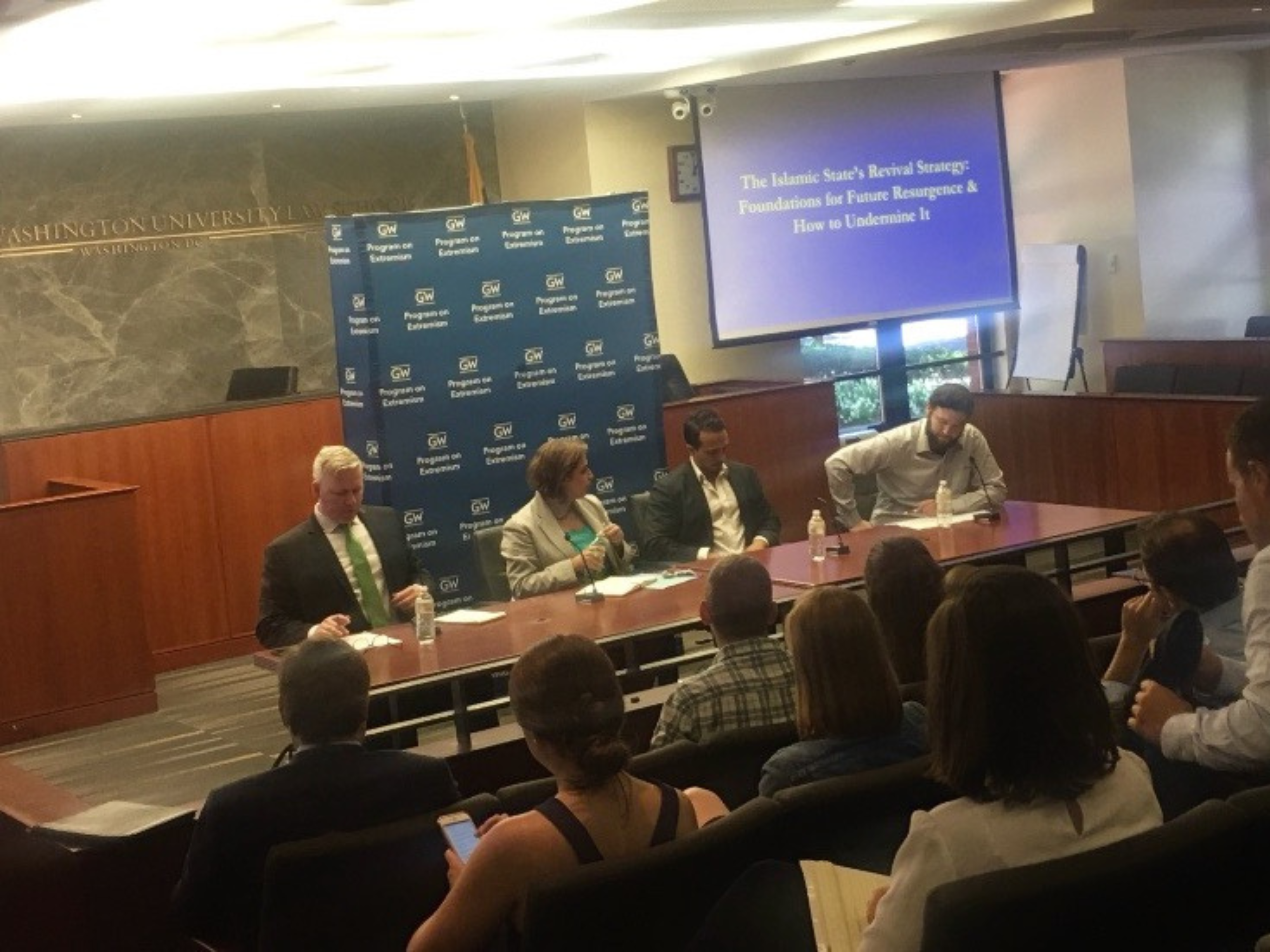The Islamic State's Revival Strategy: Foundations for Future Resurgence and How to Undermine It

Summary
On June 28, 2018, the Program on Extremism hosted a panel discussion, moderated by Program on Extremism's Research Director Dr. Alexander Meleagrou-Hitchens, on the next phase of the war against the Islamic State (IS) featuring:
- Manju Sadarangani, Deputy Coordinator of the U.S. State Department's Global Engagement Center (GEC)
- Dr. Colin P. Clarke, a political scientist with the RAND Corporation
- Dr. Haroro J. Ingram, Senior Research Fellow for the Program on Extremism
IS has suffered crippling losses of territory, personnel, and resources, from its heartlands of Syria and Iraq to its provinces in Southeast Asia and Afghanistan. While the organization is undoubtedly weaker now than in 2014, IS and its regional predecessors have shown an ability to rebuild and re-establish themselves. It is no coincidence that IS' rebirths have taken root in locations where it enjoyed previous successes. The group uses nostalgia and legacy as central tenets of its revival strategy, and the anti-IS campaign will need to pivot its efforts accordingly.
During the discussion, the three panelists offered different perspectives on the issue of how best to understand and counter IS' revival strategy. Ms. Sadarangani explained how a new GEC initiative is targeting IS' "legacy" globally. Dr. Clarke focused on the legacy of IS' information-related capabilities and what they portend for the ability of the group to rebound and reestablish itself in the future. Dr. Ingram, reflecting on his fieldwork in the West and Southeast Asia, highlighted the role of targeted capacity-building efforts to provide locals in areas impacted by IS with the knowledge and skills to confront the group.

